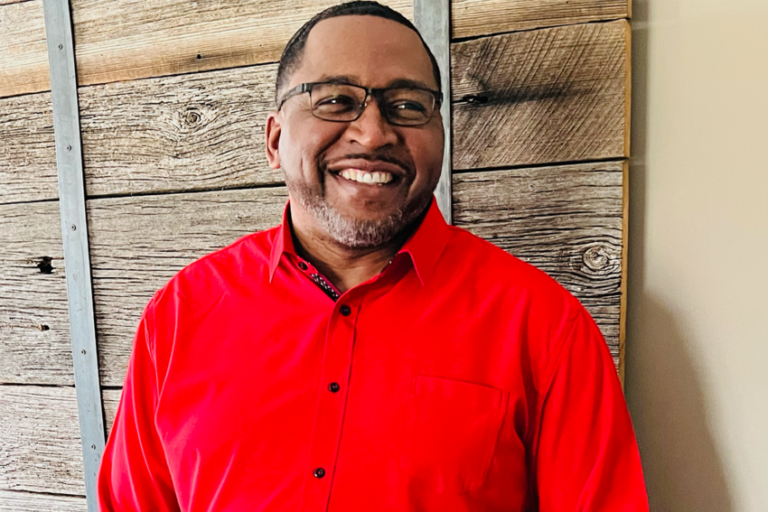[ad_1]
Creativity has always been a giant force in Freddie Marshall Carson’s life.
Known to his friends, family, and colleagues simply as Marshall, his love of music led him to study music performance and film scoring/composition at the Peabody Conservatory of Music of the Johns Hopkins University.
After Peabody, Marshall became the youngest person to ever win and hold a principal position (as principal trombonist) in the history of the Cincinnati Symphony Orchestra, beating out over 600 competitors to win the position.
At the start of the new millennium, Freddie Marshall Carson branched out further into the music industry, beginning to compose in a serious way. To date, he has authored more than 50 entirely publishable orchestral and choral works for film and commercial advertisements as a freelance composer. It was during this time that he first noticed that the sound quality from instruments was not being translated into recordings in a manner that met his classical standards. This realization prompted Marshall to begin researching and developing technology to address the issue.
Freddie Marshall Carson would go on to help create a high-end solution to this problem, recording live orchestral musicians playing real instruments and converting them into an electronic, virtual orchestral sound sample library that can be accessed through and controlled by a digital keyboard. It is this foray into hi-tech development that would eventually bring Marshall where he is today, developing a Cutting-Edge Ambisonic Technology for implementation to be embedded in the Mobile Platform – including Live Streaming Audio and Video in the 360, VR and AR spaces, all while providing the end user directorial control.
Freddie Marshall Carson currently resides in Tennessee in the Greater Nashville Area. When he is not working, Marshall enjoys spending time with his family, being outdoors, either grilling, fishing, or simply taking long nature walks.
What do you currently do at your company?
I am the founder of the company, as well as its chief technology developer. I’m a product designer of immersive audio and video technologies. It is a vertically integrated company. By that, I mean we are integrating multiple technologies into an ecosystem of audio and video. Right now, we are still in stealth mode. We have not launched all of our systems publicly. We currently have roughly 8-10 patents in the pipeline. I am the product designer and developer of these technologies.
What was the inspiration behind your business?
Essentially, I saw a real need for people to connect emotionally and physically with music through virtual means. There has been an increase in the need for this over the last few years, obviously, but I was able to envision how the industry could improve on the technologies already in use. My philosophy is that armed with great technology, we have the ability to make the user feel virtually as connected to music, both physically and emotionally, as we do in a physical or in-person setting. That philosophy is also my inspiration. Now that we are so close to making these technologies into a reality, I find myself even more excited to watch its success.
What defines your way of doing business?
One word: relationships. By that, I mean the connections you make with your team, as well as your business relationships. You don’t have to be the smartest person on your team, but you need to know who that person is and how to have them in the right place whenever and wherever you need them. Building on the strengths of everyone in your organization as opposed to running it like a dictatorship creates an environment of creativity and comradery. You want to have everyone on the same page and working toward the same goals.
What keys to being productive can you share?
The best way to be productive is to stay busy, but with purpose. Personally, I find using ‘work sprints’ (a productivity method created by Jake Knapp and John Zeratsky) to be very valuable. What I mean by that is this: I identify the times when I am the most alert, creative, and present, and I use those times to handle the majority of my business needs in an uninterrupted block of time. During those times, my focus is entirely on the project at hand. That’s why I call them ‘work sprints.’ These allow me to stay focused and to get things done within a given timeframe. I think being productive is just finding what works best for you and using that to your advantage. Everyone is different, so it’s something you have to figure out for yourself. If I work every hour of every day with full intensity, that will just inevitably burn me out.
Tell us one long-term goal in your career.
From a legacy standpoint, one long-term career goal I have is more philanthropic. I would love to create some STEM educational initiatives for minorities and the underprivileged. Helping to promote the future of Science, Technology, Engineering, and Math would be an amazing accomplishment. Often, these skills seem so out of reach to many young people, especially in historically poorer communities. The business I’m building right now will help to generate the capital we will need to do this. I want to give back and be a part of something that will help our youth find more ways to succeed.
How do you measure success?
From a business perspective, I measure success by how well I can couple others with our technology. If the customer is better off and suddenly more effective as a result of the technology that we’ve created, then I consider that a success. That really is the bottom line for any entrepreneur—their success is directly related to what they produce or what service they offer. If you are able to produce something that is needed, and you know how to market it to the right people, then you will find success. Success is not just about making money. Of course, money is important. We need it for our daily lives, but it’s not everything. Enhancing the lives of others and creating more ways to connect and engage is our primary focus.
What’s the most valuable lesson you’ve learned through the course of your career?
We learn more from failure than we do from success. It’s important to recognize and learn from failures in life, as those are the most teachable times. Those moments are how you learn to grow as a person and learn what needs to be changed in order to find success. When we fail, we tend to look introspectively and conduct a self-analysis on what we can do differently. Personally, taking the time to do this when I have faced challenges has helped me perform better as an entrepreneur.
What advice would you give to others aspiring to succeed in your field?
Always be willing to learn. Don’t try to be the smartest person in the room. That kind of thinking will lead to disappointment, especially when trying to get a business up and running. Surround yourself with the best in whatever field you are in. Look for people you can trust, consult, and grow with.
How do you maintain a solid work-life balance?
My days are time blocked (A Cal Newport method). I mentioned before that I work in sprints and that I have found become more productive in using that method. When I have tasks to complete, I will set a timer for around 20 minutes and hyper-focus during that time. This really helps to break up my day. Between those times, I have moments when I rest with nothing to do. Not having every single moment of my workday planned out helps me to better focus during my sprints, and it also helps me better appreciate the moments when I am not focused on work. My family time is scheduled whenever I don’t have something work-related going on.
What are some of your favorite things to do outside of work?
Spending time with my family is the most important thing I do outside of work. I love being outside and I especially love to grill and fish. If either of these activities are planned on weekends along with family, I’m a happy man. These are just such great ways to relax and to enjoy the people who are most important in my life.
What is one piece of advice that you have never forgotten?
Always do the right thing. No matter the circumstance or the cost of doing so, always do the right thing. I follow this advice in both my personal and business life.
[ad_2]
Source link























0 Comments